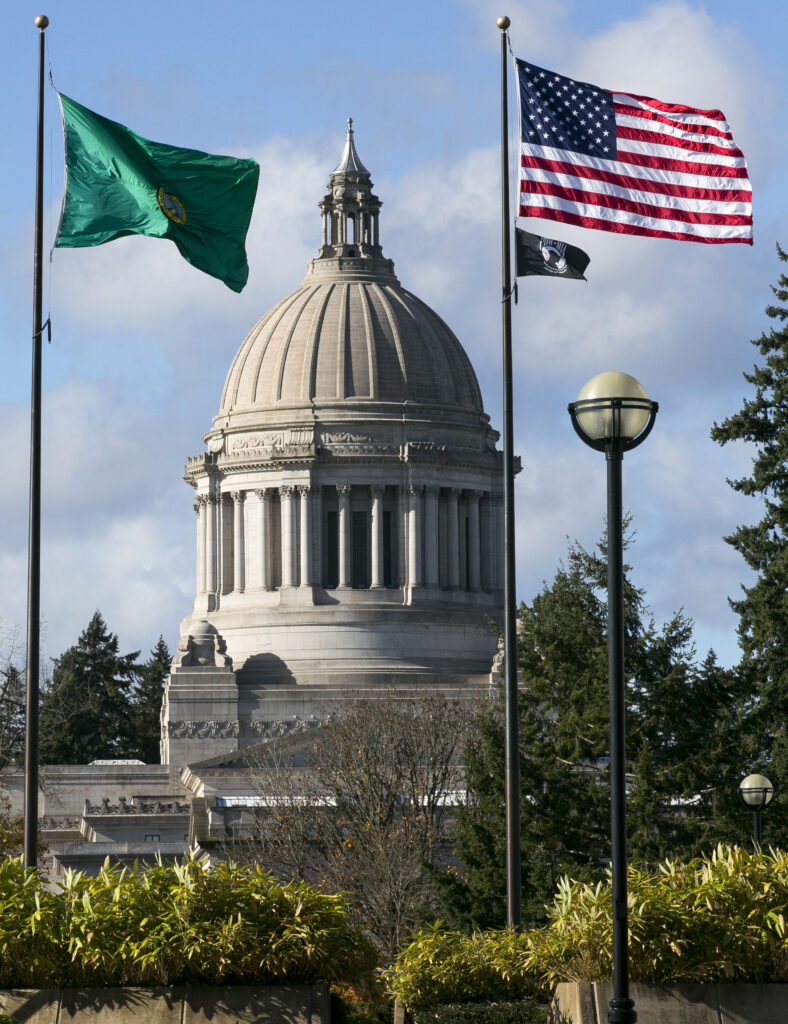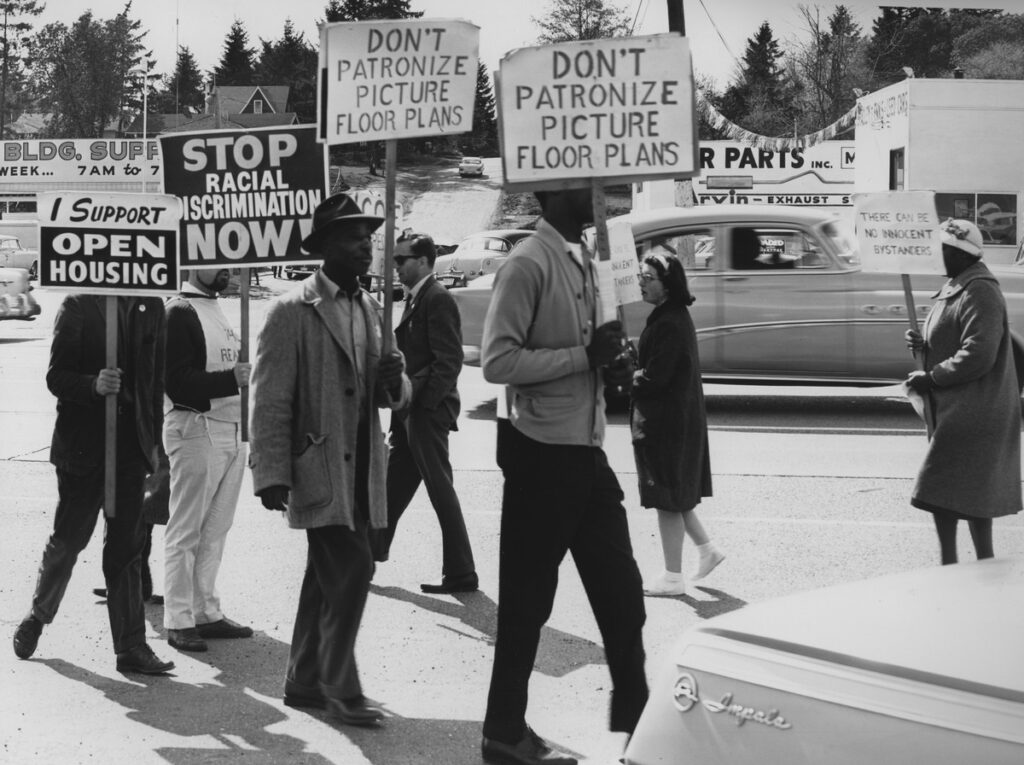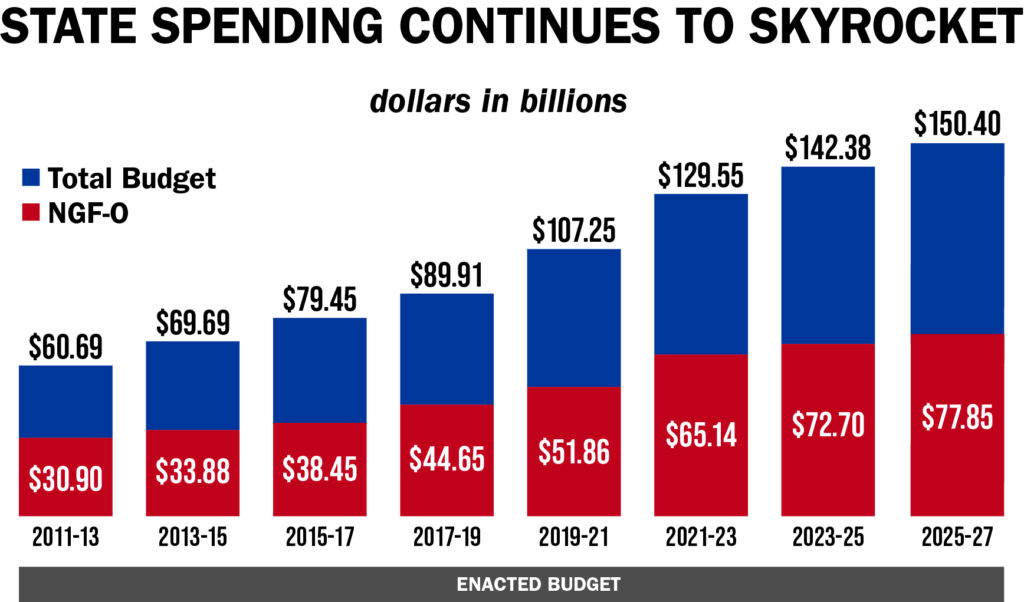Note: The following e-newsletter was distributed to Sen. Christian’s subscribers on August 1, 2025. To subscribe to Sen. Christian’s e-newsletters, click here.
This 1964 Seattle protest illustrates the agitation that led Congress in 1968 to ban redlining, restrictive real estate covenants and other forms of racial discrimination in housing. Six decades later, a state reparations program purports to offer compensation by discriminating on the basis of race. Credit: CC-by-2.0/ Wikipedia
Dear Friends and Neighbors,
 I think most of us would agree that racial discrimination is a bad thing. I just wish the Washington Legislature would see things as clearly as we do. Somehow my majority colleagues in Olympia have gotten the idea that the best way to apologize for historic discrimination is to commit the same sin all over again.
I think most of us would agree that racial discrimination is a bad thing. I just wish the Washington Legislature would see things as clearly as we do. Somehow my majority colleagues in Olympia have gotten the idea that the best way to apologize for historic discrimination is to commit the same sin all over again.
I am not making this up. To make a statement against racial discrimination, Washington state is discriminating by race. A new state program loans taxpayer money to homebuyers, but only people of certain races and ethnic backgrounds may apply. Legislative Democrats want you to believe this is progressive.
Last week we got some good news. A lawsuit challenging this injustice appears to have overcome a major obstacle, and the obvious problems with this idea may be argued in federal court. This necessary challenge to the Washington Covenant Homeownership Program could help establish once and for all that government has no business promoting racial discrimination.
Discrimination is baked into the rules
The Covenant Homeownership Program, launched in 2024, taxes every homebuyer in the state with a $100 surcharge on recording fees. Then it loans the money to first-time homebuyers to help with down payments and closing costs, up to $120,950 in Spokane County. To qualify, you need to be black, Hispanic, Native American, Native Alaskan, Native Hawaiian or Pacific Islander, Korean or East Indian. People of other races or backgrounds are excluded. This state-sanctioned discrimination is spelled out in program rules.
According to the Washington State Housing Finance Commission, 517 loans have been issued so far. This will dramatically increase under new legislation that relaxes income requirements. This year’s amendments also allow loans to be forgiven under certain circumstances, retroactive to the start of the program, turning them into a gift of taxpayer funds.
Not much connection to historic discrimination
Majority lawmakers sold this legislation in 2023 as a way to atone for the redlining and restrictive racial covenants that discriminated against minority real estate purchasers many years ago. Certainly this was unfair and should never have been tolerated. But it happened so long ago that anyone denied a loan has probably shuffled off the mortal coil by now. These discriminatory practices were on the way out by the early ‘60s and were banned by federal law in 1968. It’s been nearly 60 years.
The only connection with the past is that applicants must prove that they or their ancestors lived in Washington before 1968. Many groups excluded by covenants years ago are excluded from these generous state benefits, especially people of Jewish descent, Chinese, Japanese and other Asian populations. So this really isn’t about compensation – it’s about giving away taxpayer money to minority groups that enjoy political favor.
Lawsuit offers hope
The Pacific Legal Foundation, a public-interest law firm, has filed a lawsuit on behalf of the Foundation Against Intolerance and Racism. It points out that the state clearly is violating the 14th Amendment to the U.S. Constitution, which guarantees equal protection of the law to all individuals regardless of race. In June a U.S. District Court judge dismissed the complaint for technical reasons, but allowed plaintiffs to re-file if they could comply with his criteria. Last week they did just that. If ever a case deserves to advance to the U.S. Supreme Court, this is the one.
Washington voters have spoken loudly and clearly on this issue. In 1998 they passed an initiative banning racial discrimination in state contracts and higher education admissions. The majority tried repealing it in 2019, and the people reaffirmed their position by passing a referendum overturning the new law. Unfortunately, advocates of racial discrimination keep looking for ways to advance their agenda. They say we aren’t sophisticated enough to understand this issue, and I am proud that so many Washingtonians see through their condescending nonsense. As Chief Justice John Roberts once observed, “The way to stop discrimination on the basis of race is to stop discriminating on the basis of race.” Amen to that.
Despite massive tax increase, state already in financial trouble
Governor tries to sell idea that White House is responsible
 Can you believe it? Majority-party leaders are hinting that next year they will probably need to raise taxes again. That’s really the biggest news out of Olympia during this slow-paced summer season. Somehow, after raising taxes an astonishing $14.15 billion this year, the biggest tax increase in state history, we still don’t have enough money. Gov. Bob Ferguson is telling us we are in the middle of the biggest budget crisis we’ve ever had, and he is doing his best to make us believe it is all the fault of that fellow in the White House.
Can you believe it? Majority-party leaders are hinting that next year they will probably need to raise taxes again. That’s really the biggest news out of Olympia during this slow-paced summer season. Somehow, after raising taxes an astonishing $14.15 billion this year, the biggest tax increase in state history, we still don’t have enough money. Gov. Bob Ferguson is telling us we are in the middle of the biggest budget crisis we’ve ever had, and he is doing his best to make us believe it is all the fault of that fellow in the White House.
Most of the claims are false. Next year, Washington will lose some federal funding for health care, but this wasn’t the doing of the present administration. After the Affordable Care Act was passed 13 years ago, Washington took advantage of increased federal subsidies to expand health care programs. But everyone at the state and federal level knew the subsidies would expire at the end of 2025. Multiple administrations and multiple Congresses had a chance to do something about it, and everyone took a pass.
None of this is a surprise, and the real problem is that the state failed to prepare for it. Rather than socking money away, under Democratic leadership the Legislature spent itself into a budget crisis. There were no meaningful course corrections to bring spending into line. We got a whopping tax increase instead. This refusal to rein in our skyrocketing spending is going to make our problems next year that much deeper.
Ferguson is right on one thing. We are probably going to see another effort to raise taxes next year. This has more to do with poor decision-making in Washington state than in Washington, D.C. The fact that the governor already is blaming the White House is a hint about how bad those problems are going to be.
This year’s massive tax increase allowed state spending to continue on the same skyrocketing trajectory while avoiding course corrections.
Washington state leads the nation
…in job losses in construction, that is. The Puget Sound Business Journal reports that the state’s construction industry lost 11,300 jobs between June 2024 and June 2025, the largest employment decrease in the country. California and New York ranked number two and number three. The figures show construction work in Washington state has thinned out as fewer projects advance. The figures, compiled by the Associated General Contractors of America, indicate that the Seattle-Tacoma-Bellevue metro area accounted for a third of the state’s job losses. Nationally, the construction industry added 87,100 jobs during that period.
Mark your calendar!
We’re planning another town hall meeting this year, this one to be held in October. I’ll keep you posted about date and location. I’m looking forward to it, and I hope to see you there.
Thanks for reading,
Leonard Christian
4th Legislative District
Contact me!
 If you have a comment about state government, or a concern with a state agency, I hope you will reach out to my office. My most important duty is to serve you.
If you have a comment about state government, or a concern with a state agency, I hope you will reach out to my office. My most important duty is to serve you.
Mailing address: Post Office Box 40404, Olympia, WA 98504
Email: Leonard.Christian@leg.wa.gov
Phone: (360) 786-7606
Leave a message on the Legislative Hotline: 1 (800) 562-6000
To unsubscribe, visit the link to the Subscriber Preferences Page below.













